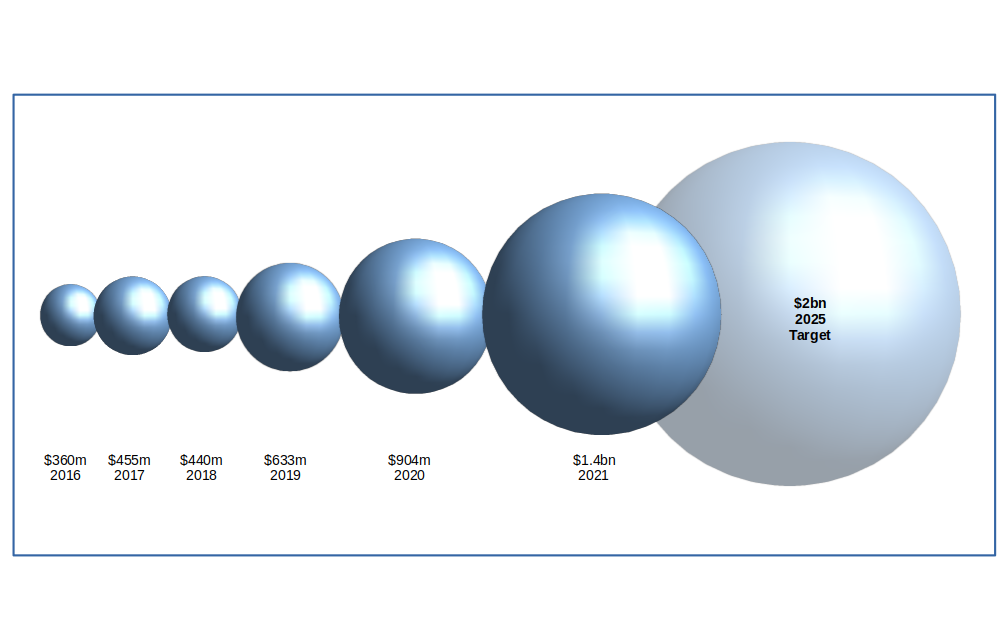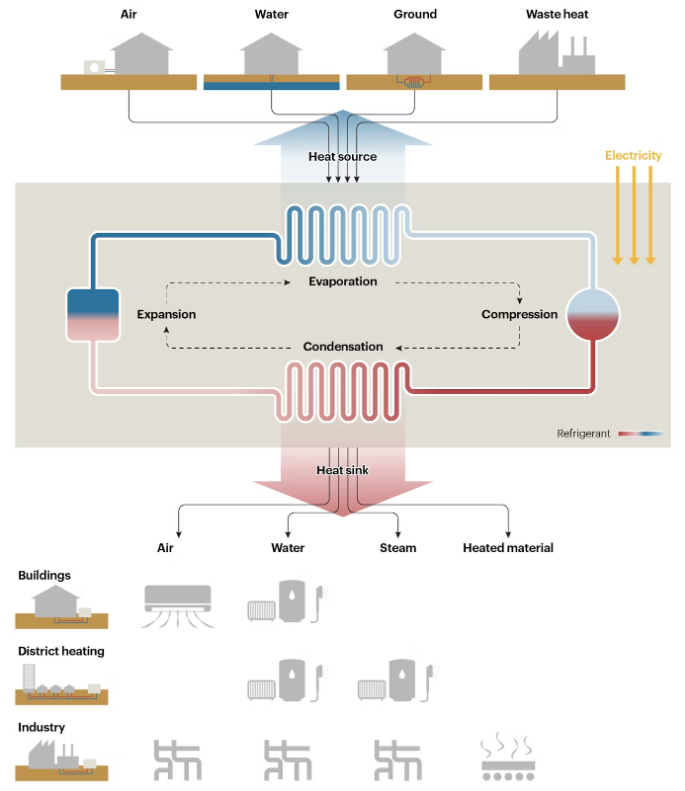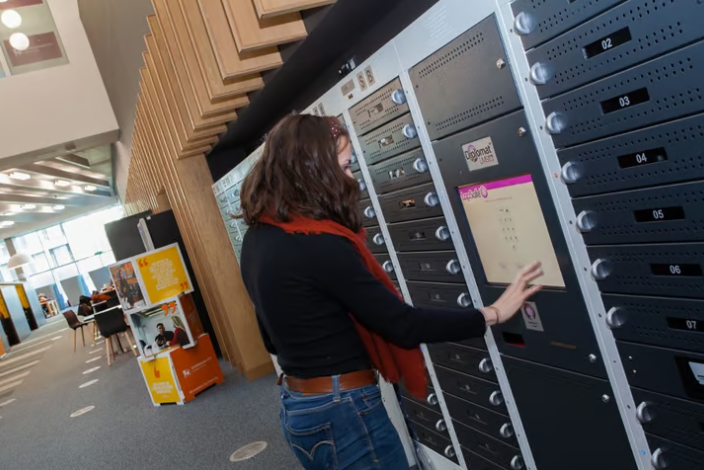
What caught our eye - three key stories (week 15, 2024)
Here are three stories that we found particularly interesting this week and why. We also give our lateral thought on each one.
Read in full by clicking on the link below.
'What caught our eye' like all of our blogs are free to read. You just need to register.
Please forward to friends, family and colleagues if you think they might find our work of value.

KlimaSeniorinnen, the Great Indian Bustard and Insurance.
A number of judgments were handed down last week that could have important implications for insurance, investing and project viability.
The European Court of Human Rights ruled that Switzerland violated citizens' human rights by not doing enough to combat climate change. The court sided with over 2,000 Swiss senior women, the Klimaseniorinnen, who argued the government's inaction put them at heightened risk from heatwaves. While rejecting two other climate cases on procedural grounds - one brought by a group of six Portuguese children and young adults (Duarte Agostinho and Others v. Portugal and 32 Others) and one by a former mayor of a low-lying French coastal town (Carême v. France) - the ruling establishes a legal duty for the 46 European Convention signatories to reduce emissions.
Experts say it will embolden communities to sue governments over climate failures and could influence courts globally amid the rising wave of human rights-based climate litigation.
In the same week, an India Supreme Court landmark ruling from 21 March was made public regarding a case about protecting the habitats of critically endangered Great Indian Bustard and Lesser Florican bird species from power transmission lines.
Effectively the Supreme Court significantly expanded the "right to life" under the constitution (Article 21) to include protection against adverse climate change effects.
"Without a clean environment which is stable and unimpacted by the vagaries of
climate change, the right to life is not fully realised", Dr DY Chandrachud, Chief Justice said in his judgement.
All of the above cases increase the probability of further litigation at the sovereign level but potentially also against corporates.
And further litigation brings with it implications for the insurance industry and costs of insurance for organisations.
We have previously highlighted the critical position of the insurance industry in the sustainability transitions. Insurance companies can play a triple role through their choice of projects to underwrite (e.g. insurers walking away from the Adani Carmichael coal mine project), their choice of investments and their activities in the sustainability space that ultimately reduce the risk they are underwriting 👇🏾

In some cases there is a risk that insurers walk away from high risk areas (those areas become uninsurable) or the costs of insuring a project become too high rendering the project economically unviable 👇🏾

However, could we see more sustainable projects get the financial and resource backing they need as a result of investment / incentives from the insurance industry through appropriately priced policies and an effective splitting of underwriting savings ('I-support-a-project-that-ultimately-lowers-risk-I-therefore-have-a-lower-potential-payout-in-the-future')?
The Insurance Industry could be THE key player in the transitions.
Heating and the importance of systems thinking.
The Heat Pump Summit took place at the Blavatnik School of Government, University of Oxford on 10th April.
Despite a long history of heat pump innovation and usage - the first large scale heat pump in the UK was in operation in 1945 in Norwich - household installed heat pumps in the UK have lagged its European neighbours 👇🏾

The aim of the summit is to "aid the rapid progression of the heat pump industry".
Session titles included "How can we collaborate as an industry to accelerate heat pump adoption?" and "Mass market for heat pumps: which policies work?" and "Carrots and sticks: The role of government policy in kickstarting Britain's heat pump revolution."
Host of renewable energy podcast BetaTalk and heating expert Nathan Gambling made an important plea ahead of the summit: "Don't lose the message that heating is a system."
In other words it isn't about an efficient heat pump or an efficient boiler in isolation, but all parts of the system need to be appropriate for the use case.
Nathan has used a great analogy in the past. He points out that simply transferring the heart of Usain Bolt (current men's 100m and 200m track world record holder) into his own body is not going to make him run faster because the other parts of 'the system' are not 'appropriately tuned.'
In the case of the built environment, that system comprises heat sources and then something to move that heat to a heat sink.

As Nathan points out, radiators in the home are the 'sink' part of the system and the heat pump deals with the 'source'.
We need all parts of the system to work effectively together and Nathan highlights some issues with measurement and published figures, not only of heat pumps but also of radiators - in some cases outright falsification. As Nathan points out, if we can't rely on accurate reporting of power outputs "there is a risk heat pump systems will run hotter than they need to causing higher bills for the customer." The negative press associated with that obviously acts as a barrier to adoption. Here is a video version of his BetaTalk podcast that discusses this 👇🏾
Looking more broadly at other sustainability transitions, the language that is used is an important tool in arriving at appropriate solutions. How we frame questions is important. With regards the home, compare these two questions:
"How do we heat the home?" (or cool it)
This framing pushes us towards a focus on the energy or fuel source required. Indeed, much focus has been on replacing natural gas boilers with “X”, where “X” is a heat pump, hydrogen, solar, wind etc., while ignoring (or at least deprioritising) other potential solutions.
We could frame the question differently:
“How do enable people to keep their homes at an appropriate temperature efficiently?”
This is more open and encourages a more holistic thought process, bringing in not only the energy source to vary temperature but also ways in which we can prevent wastage, enable people through funding and resources or indeed identify what “appropriate temperature” means. Effective insulation, innovative building materials and design (for airflow and thermal flow), and even consideration of whether the provision is local or distributed could all ultimately reduce the ongoing cost for the end consumer which has important ramifications for social equity too and can be more readily applied globally as a starting point.
The same is true of transportation - replacing ICE vehicles with EV or looking at the overall system of how we live and interact with different places?
We have written on systems thinking a lot.
Energy systems - it is not just about the generating source but the overall infrastructure to get electricity to where it is needed at the right time 👇🏾

Providing laptops to students who may not otherwise have access is not just about buying the laptops themselves, but the infrastructure to deliver, monitor and maintain too 👇🏾

Finally, when thinking about our own health, considering overall wellbeing can be more effective than treating 👇🏾

Deforestation - promises promises promises
Most people agree we need to halt and then reverse deforestation. This has been reflected in all sorts of pledges and commitments, the most high profile probably being from COP26 in 2021, where governments and companies promised to halt and reverse forest loss and land degradation by 2030.
That all seems pretty clear - as a rough rule of thumb this would require a 10% annual reduction to reach zero deforestation. And over the same period we want to restore some 350m hectares of lost and degraded forests.
So how is it going? Sadly not well.
A recent report out from the World Resources Institute shows just how far off-track we are.

In fact, to quote the report "the global deforestation rate in 2023 was 2% higher than the baseline from 2018-2020".

The implications of this are pretty well understood. Forests are a significant ecological and economic resource that sequester carbon and provide habitat for wildlife and livelihoods for communities.
But, as the report points out, we made all of the pledges in a vacuum - they were not backed up by the information we needed to monitor delivery of the pledges. In the years since these pledges were made, their impact has not been adequately monitored, leaving a lingering question of how much progress is being made. This equates to almost zero accountability.
And the cynic in me has to wonder if that wasn't the objective in the first place!
So the good news I guess is that with the publication of this report, and the work of others, we now have a benchmark. Yes, we need better monitoring systems, but this is a start.
The other good news is that it is possible to make a difference. Progress has been made on slowing palm oil related deforestation, largely as a result of a series of moves, some small, some larger. One contributor has been moves by some of the major FMCG companies, which we highlighted in a recent blog.

But, at the same time we want to inject a note of caution. Even when the work is well intentioned, it sometimes doesn't have the impact you might expect. For instance it's well known that Europe is active in introducing regulation to ensure that products being sold in the region meet minimum human rights and environmental standards.
But, little work has been done so far on the difference the rules will make in the exporting country. Will they lead to better human rights and environmental practices? The assumption is yes, but has this been tested? Back in February we wrote about a study that suggested the impact might be less than hoped for.
Why? Because of what they call supply chain divergence. This is basically sending different products to different markets. And, in short, the product going to European countries with already high standards has a lower environmental impact. But the rest does not. And the rest is much bigger, so the net impact is actually quite small.
It's worth a read. It doesn't mean that we do nothing, but we need to have reasonable expectations.
Link to blog 👇🏾

Something a little more bespoke?
Get in touch if there is a particular topic you would like us to write on. Just for you.
Contact us
Please read: important legal stuff.

